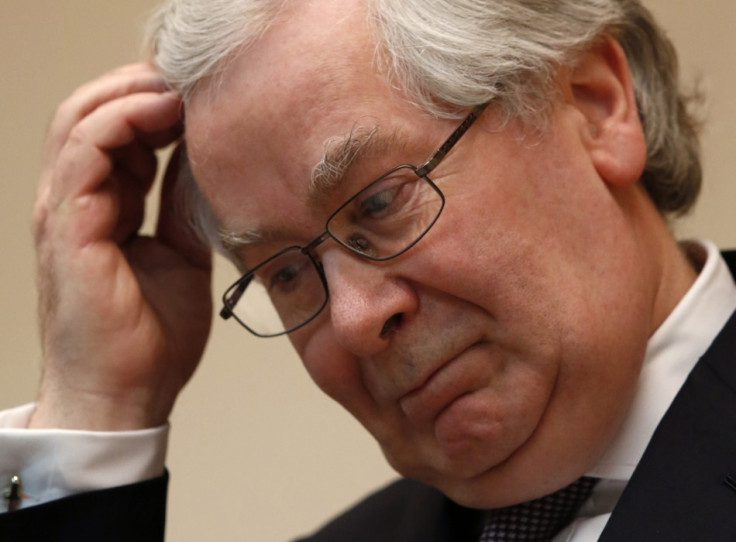Bank of England: Mixed Data Muddies MPC's QE Decision

Opinion is as mixed as the economic data over whether the Bank of England will opt for more asset purchases under its £375bn quantitative easing programme, as the increasingly dovish monetary policy committee prepares for its March interest rate setting meeting.
A blend of disappointing data from the private manufacturing and construction industries, a robust service sector, the loss of the UK's AAA status at one of the leading credit rating agencies, sticky inflation, and the market's continued faith in gilts has muddied the decision on further quantitative easing.
"These figures are not weak enough to make extra QE this week a certainty, but nor are they strong enough to make extra stimulus unnecessary," said Citi's UK economist Michael Saunders. "On balance, we continue to expect that the MPC will announce an extra £25bn QE this week, but if it does not come this week it probably will come soon."
Private industry surveys from construction and manufacturing showing a contraction in activity have been negated by a robust service sector, the UK economy's driving force, which has beaten expectations and should help the country narrowly avoid a triple-dip recession.
The markets have shrugged off the UK's loss of its AAA credit rating after it was downgraded a notch by Moody's Investor Services amid bloating public debt, the continued global slowdown in demand, and domestic GDP stagnation. Gilt yields have remained around record-lows.
Despite stimulus from the BoE's flagship credit easing initiative, the Funding for Lending Scheme (FLS), lending by British banks fell by £2.4bn in the fourth quarter, which strengthened the case for further QE.
However, the Bank was quick to point out that it is still early FLS's life, and that the contraction in lending may have been much worse without it.
Under QE, which is carried out via the BoE's Asset Purchase Facility, the Bank buys gilts from the market in order to improve liquidity, bring down yields, and drive investors to riskier pastures. So far it has bought £375bn of assets.
At the previous MPC meeting in February, Governor Mervyn King joined two other members in voting for £25bn more asset purchases. Only one member, David Miles, had supproted more QE in January.
"This significantly raises the probability of an MPC majority vote at this week's MPC meeting but, on balance, we still think that the odds are slightly in favour of no change at this meeting, said a note from SocGen.
"To form a view on the appropriate course of action, we need to have an understanding of the outlook for GDP and inflation, just as the MPC does.
"We see GDP gradually picking up but are more worried about the inflation path, which has increasing upside risks. This might not dissuade the MPC from further easing but it could hurt the credibility of policy."
Ross Walker, UK economist at RBS, also disagrees that further QE will be announced at the end of the MPC's March meeting.
"The market was poised for a weaker number, following the manufacturing and construction figures, and everyone was going to leap on this 'more QE on Thursday' band wagon," he said.
"But I've been saying that we have stock markets surging, trade-weighted sterling down 6 percent since the start of the year and underlying economic data is no different - so I'm struggling to see what the pressing need for more QE is."
Rob Harbron, an economist at the Centre for Economic and Business Research (CEBR), also does not expect more stimulus just yet.
"There's obviously a growing argument for it, with some of the latest output data (e.g. PMIs for manufacturing and construction) remaining weak, but we think they'll save it until Q2 before increasing asset purchases," he said.
Appetite for more QE appears to be growing among MPC members.
At a recent Treasury select committee hearing, Paul Tucker, deputy governor of the Bank, gave a strong hint that further asset purchases would come sooner rather than later.
"Nobody on the Committee thinks that QE has reached the end of the road and that it's not a useful instrument anymore," Tucker told MPs.
"We stand prepared to do more, if we judge that necessary."
© Copyright IBTimes 2025. All rights reserved.





















